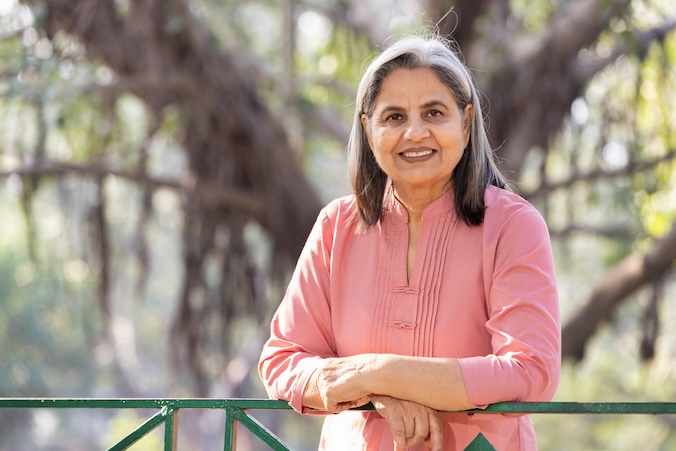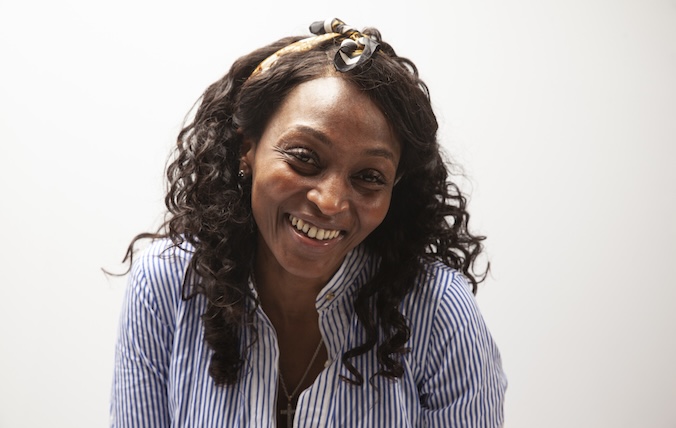Nutritionist Sophie Bertrand gives her top tips on eating for health

We’d love to introduce you to Sophie Bertrand, nutritionist, recipe creator and friend of Rejuvenated.
As a qualified nutritionist, I am extremely passionate about encouraging individuals to eat for their health and not to achieve a desired number on the scales. In fact, I actually like to encourage individuals to say goodbye to the scales altogether; because why should a number determine your levels of happiness that day, or the way you perceive yourself? The answer is it shouldn’t! So if you take one thing from reading this article – ditch the scales and focus on your health.
When I talk about eating for your health and not your weight, I am talking about the ability to recognise why you are eating the foods you do and whether or not you are aware of the reasons you are eating them. Maybe you are eating because you are hungry, happy, sad, bored, because you think that piece of food will help you lose weight… or maybe, you are eating what you are eating because you are thinking ‘this piece of food is really great for my health’. And wouldn’t that be great, if the majority of our food choices were tailored towards what we knew was good for our health; brain health, bone health, heart health, the list goes on. Now I know that there is simply too much information regarding food and nutrition for us to know absolutely everything but what we do need to know is that food is fuel. Food is what gives us energy to think, function, move and be happy. But the problems around food start when it becomes the victim of a fad diet or used only as a reward when you think you have done a hard enough session at the gym for example.
Now we can assume that most people are aware that high fat, high sugar and processed food diets are not going to be doing much in terms of achieving a healthy way of living. These types of re-manufactured foods will most likely also lead to bad skin, unhealthy hair and nails and will probably cause sugar cravings throughout the day which will encourage an unhealthy eating pattern. But when people go the other way and start to cut out food groups or restrict themselves to lose weight, it will inevitably be the case that your relationship with food will become extremely unhealthy. So where is the balance?
My mission in my career is to create positive perceptions around food, and to educate individuals to eat for their health. I truly believe that if you are eating in a healthy and well-balanced way, everything else will fall into place. Constantly messing around with new fad diets will ultimately mess with your mental and physical health and will most likely leave you feeling fed up and lacking energy.
I want to tell you a few facts about food that, in my opinion, are facts everyone needs to consider when thinking about their diet…
1. Carbs are not the enemy- carbohydrates are in fact the body’s primary source of energy. When it comes to carbs, it is all about choosing the right kind of carbs- the types that are slow releasing, and that will aid in keeping our blood sugar levels at an even keel. This way, we can prevent sugar cravings. See, when we eat fast releasing carbohydrates such as white bread, the sugars are converted to energy very quickly and will then cause a sugar ‘crash’ which will leave our bodies craving more sugar thus leading to a vicious cycle. On the other hand, when we consume slow releasing carbs such as wholemeal bread, pasta and grains, our energy levels are kept steady by the slow releasing sugars. So just be smart about your carbohydrate choices and remember that if you lead a very active lifestyle, you will need a substantial amount of complex carbohydrates to fuel your body properly.
2. Fat is also not the enemy- Another misconception is ‘fat equals fat’. Again, not the case. In fact, certain types of fats in our diet are absolutely essential. Let’s take unsaturated fats… These include polyunsaturated and monounsaturated fats that can be found in oily fish, nuts, cooking oils, avocados etc. Now, these types of dietary fats are essential for cell growth and also help protect our body’s organs. Fats are also essential for the absorption of specific nutrients in the body. So if you are thinking it is a good idea to cut fat out of your diet- think again. It is again just down to making the right food choices and choosing what we call ‘healthy fats’, that are going to provide your body with nutritional benefits.
3. We need adequate amounts of protein- Something that I hope is becoming more obvious to individuals is that protein does not make you bulky! I have known many people to associate anything that relates to protein to ‘muscles’ and ‘bodybuilders’ and thus automatically thinking that by eating too much protein will lead to you ‘bulking up’. I can tell you that this is not the case. Gym goers and bodybuilders achieve their ‘bulging’ muscles by consistently weight training and upping their protein intake by considerable amounts. Adequate amounts of protein are essential every day for the growth and repair of cells. The amount of protein needed will differ in each individual depending on size, weight, height and the amount of exercise one is doing every day. However, we all need protein in our diet as protein is used in every functioning cell therefore without it, our body simply cannot function at optimum level. We should be eating a good amount of protein at every meal.
4. The more colour, the more micronutrients- One of the reasons I will always encourage individuals to choose colourful meals, is because the more colour you have in your diet, the more micronutrients your body has access to, thus the more diverse your gut bacteria will be. Now gut health is a whole other topic that I could talk about for ages, but for now, I will just tell you that maintaining good gut health is essential for your wellbeing as well as the absorption of nutrients. So the more diverse you are with your food choices the better. And like I said the easiest way to be aware of your micronutrient intake, are to be mindful of the colours you’re adding to your diet. Think red, orange, yellow, green, purple and think about the variety of nutrients you will be giving your body by mixing up your food choices.
Although there are incredibly mixed messages available in regards to ‘dieting’, it can actually be as simple as just making sure you have a good balance of carbs, protein, healthy fats and micronutrients in order to stay healthy. Of course we are all inclined to have a slice of cake every now and again (which is totally fine!) but in general, we need to focus our attention on choosing healthy, whole foods that provide us with energy and nourishment to live happily and healthily. Do not feel guilty for having a cupcake or snacking on a bar of chocolate once in a while because everything in moderation is a healthy way forward.
MSc Nutritionist, Sophie Bertrand. Discover more about Sophie






